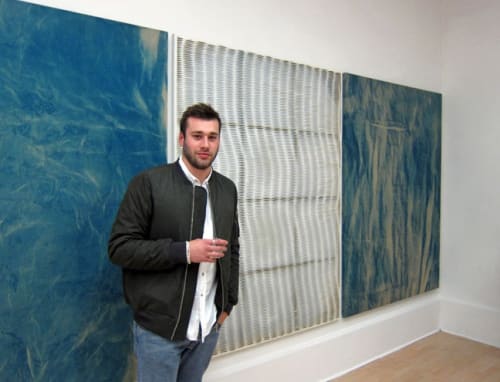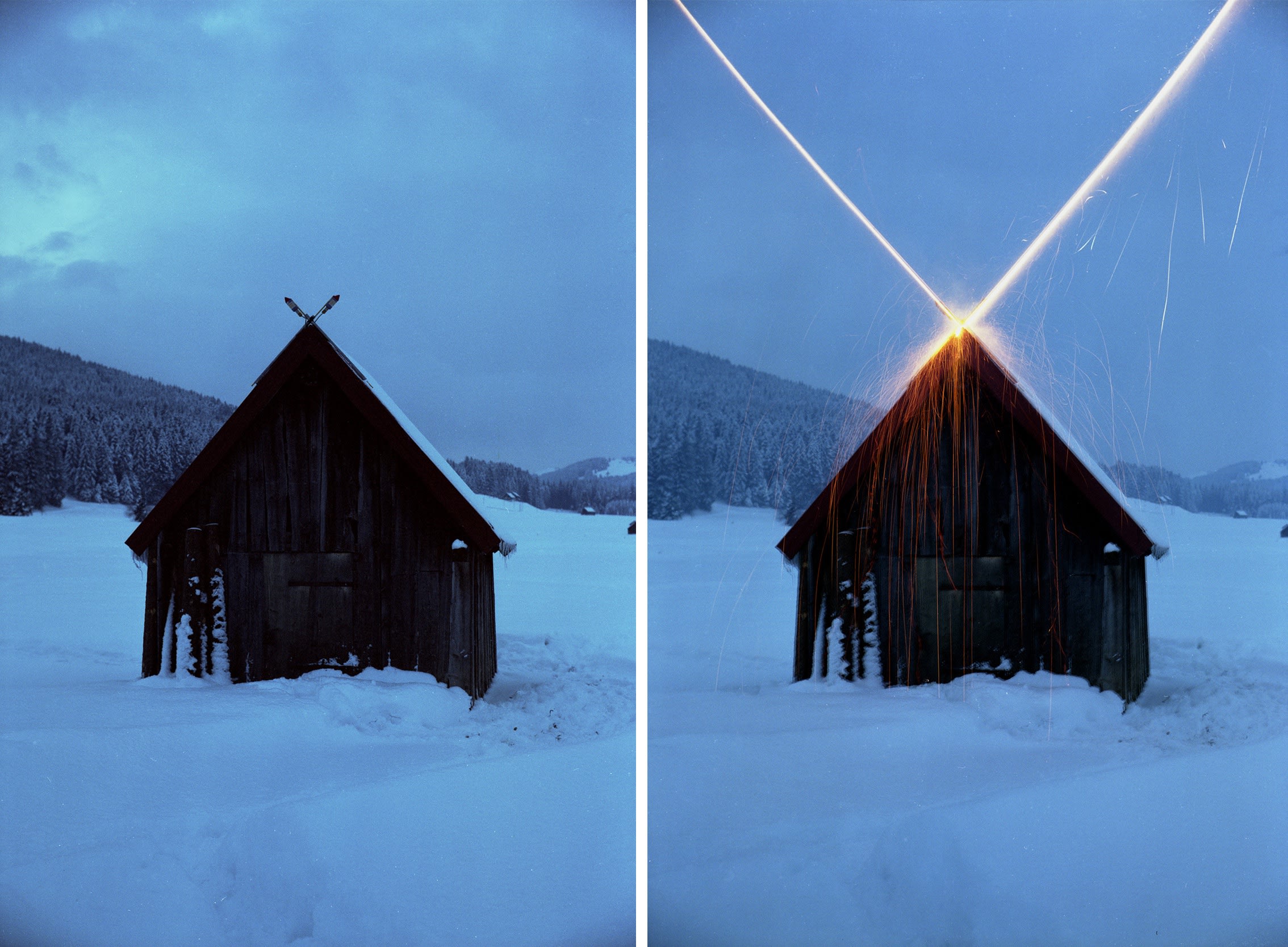Hugh Scott-Douglas was born in 1988 in Cambridge, England and lives in Toronto (currently lives and works in Brooklyn). He studied at Pratt (2005) and OCAD (2010). His thesis exhibition, “An Invitation To Lubberland” at the gallery attracted considerable interest for its cohesive melding of painting, monoprints, sculpture, furniture, lamps and installation elements. With his 2011 solo exhibition, “Chinese Whispers” the gallery proudly announced his representation. He has since exhibited at CliftonBenevento (NY); Wallspace (NY); Croy Neilsen (Berlin); Brand New Gallery (Milan) and Silverman Gallery (SF).
Scott-Douglas makes work that refers to production itself, to its consumption and to its container, using visual cues gleaned from minimalism and op art. The central dialectic of the work springs from the tension between the need for a rigid authority figure, on the one hand, and the very possibility of establishing such an authority, given that it is so easily subverted by its own parts. This tension arises when, in each work, the authority is embedded in a severed partnership – half medium, half author. However, through Scott-Douglas’s process-oriented methodology, one of the partners is elected over the other. In each case there is an emphasis on transparency and a push towards a paradoxical state of “non-denial denial”. In Scott-Douglas’s treatment formalism is detourned to allow the medium to execute its own mutiny. Experimentation and process become central themes that allow some works to be successful and others to fail; this produces a formalism that is equally in tension – working both towards and against a static form.
Scott-Douglas makes work that refers to production itself, to its consumption and to its container, using visual cues gleaned from minimalism and op art. The central dialectic of the work springs from the tension between the need for a rigid authority figure, on the one hand, and the very possibility of establishing such an authority, given that it is so easily subverted by its own parts. This tension arises when, in each work, the authority is embedded in a severed partnership – half medium, half author. However, through Scott-Douglas’s process-oriented methodology, one of the partners is elected over the other. In each case there is an emphasis on transparency and a push towards a paradoxical state of “non-denial denial”. In Scott-Douglas’s treatment formalism is detourned to allow the medium to execute its own mutiny. Experimentation and process become central themes that allow some works to be successful and others to fail; this produces a formalism that is equally in tension – working both towards and against a static form.

